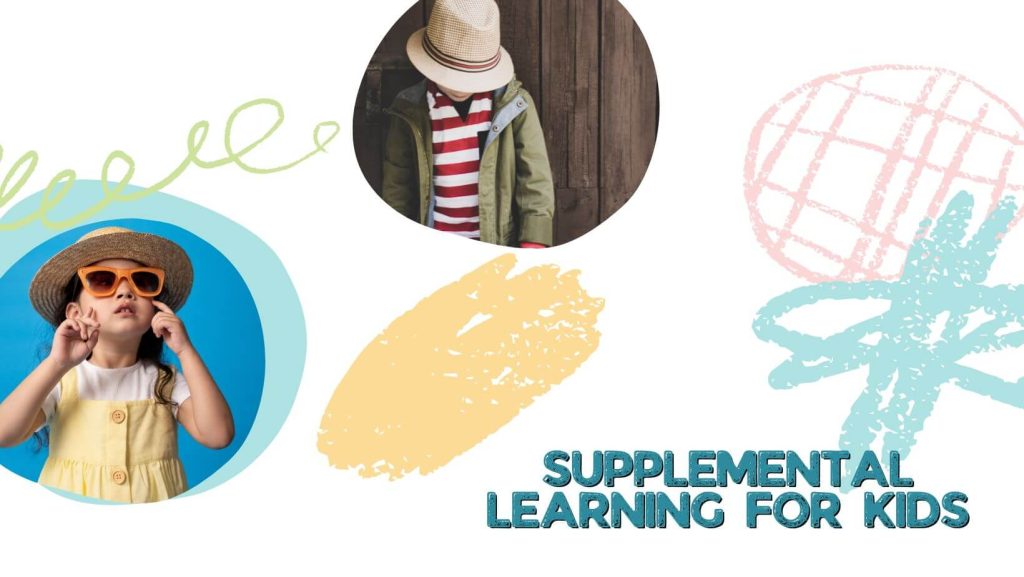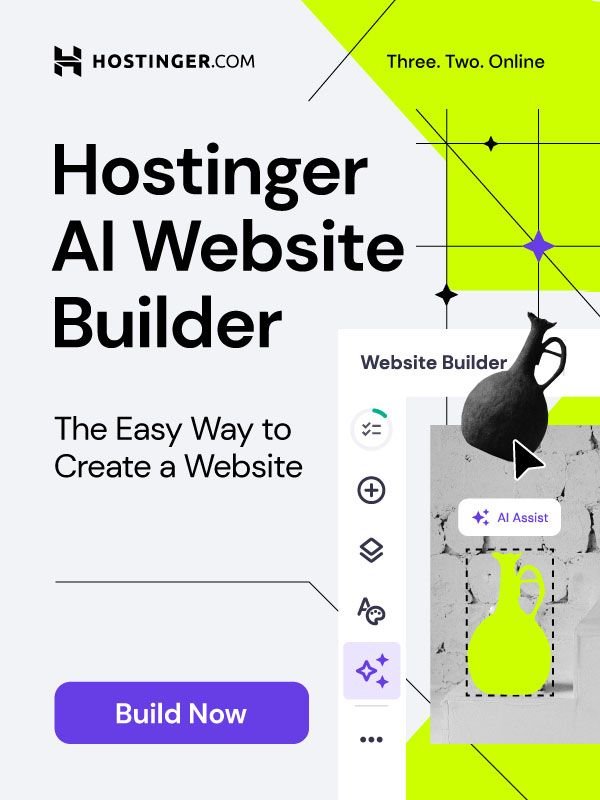Children today face many challenges and opportunities in their education. They need to learn not only the basics of reading & writing, but also how to think creatively, communicate effectively, and collaborate with others.
How can parents and educators help children achieve their full potential and prepare them for the future? One way is to supplement their learning with activities that go beyond the traditional classroom setting. This is what supplemental learning for kids is all about.
In this article, we will explore what supplemental learning is, why it is beneficial, and how you can find online activities that suit your child’s needs and interests.
What is supplemental learning
Supplemental learning is an alternative educational method that aids in the development of vital skills and knowledge beyond the confines of a conventional classroom environment. It can be used in combination with traditional instruction or as a stand-alone approach to help children reach their learning goals.
Supplemental learning can include activities such as online foreign language classes, music lessons, tutoring, extracurricular clubs, and more.
Why it is important for kids
Supplemental learning is important for kids because it can offer them many benefits, such as: – Improving their academic performance and confidence in subjects that they may struggle with or want to excel in.
– Developing their critical thinking, problem-solving, and creativity skills through engaging and challenging activities.
– Enhancing their social skills and cultural awareness by interacting with peers and instructors from diverse backgrounds and perspectives.
Benefits of Supplemental Learning for kids
Supplemental learning is a way of providing extra academic help to children in subjects that they may need or want to improve. It can also expose them to new topics and activities that are not covered in the regular school curriculum.
Supplemental learning can take many forms, such as online programs, tutoring, music lessons, clubs, and more. Some of the benefits of supplemental learning are:
• Improved academic performance and confidence:
Supplemental learning can give children individualized support and targeted subject help.
• Enhanced critical thinking and problem-solving skills:
Supplemental learning can challenge children with engaging and creative activities.
• Improved social skills and cultural awareness:
Supplemental learning can allow children to interact with peers and instructors from diverse backgrounds and perspectives.
• Exploration of interests and passions:
Supplemental learning can help children discover new opportunities for learning and growth.
• Better study habits, time management, and organizational skills:
Supplemental learning can help children balance their schoolwork and supplemental activities.
• Reduced stress and boredom:
Supplemental learning can provide children with healthy ways to express their emotions and have fun
How to Choose the Right Supplemental Learning Program for Your Child
To choose the right supplemental learning program for your child, you should consider their learning needs, interests, goals, preferences, and availability.
Here are some factors that can help you find the right learning program.
1. Consider your child’s interests and learning style
To choose the right supplemental learning program for your child, consider their interests and learning style. Children learn differently and like different things. Observe your child and find a program that matches or complements how they learn and what they like. This can help them enjoy learning more.
2. Identify their strengths and weaknesses.
Another factor that can help you choose the right supplemental learning program for your child is to identify their strengths and weaknesses. Children have different abilities and skills in various areas, such as personal, cognitive, social, and communication. By observing your child’s actions, interests, and preferences, you can get a sense of what they are good at and what they need to improve.
3. Set realistic goals for their academic progress
You can also decide on the best extra learning program for your child by having clear expectations for their school improvement. Goals can help your child stay motivated, focused, and accountable for their learning. However, goals need to be realistic and attainable, not too easy or too hard. To set realistic goals, you can use the SMART framework: Specific, Measurable, Achievable, Relevant, and Time-bound.
4. Find a program that is aligned with your child’s school curriculum
It can also help you pick the right extra learning program for your child if you look for a program that matches what your child is learning at school. Alignment means that the program covers the same content and skills that your child is expected to learn at school, and uses similar methods of instruction and assessment. Alignment can help your child reinforce their learning, avoid confusion, and prepare for tests.
One example of a program that is aligned with the school curriculum is Mel Science. They combine hands-on experiments with VR/AR technologies to make education fun and engaging. Mel Science covers the main topics in chemistry and physics curriculums, and provides interactive lessons, labs, and simulations that help kids understand what is happening on the molecular and atomic level.
The Benefits of Mel Science

Mel Science Website Homepage
1. Improve academic performance in science
Mel Science can improve academic performance in science. It offers hands-on projects and digital experiences in chemistry, physics, and elementary science.
One of its features is the Mel Science chemistry kits, which include everything kids need to conduct safe and exciting experiments at home.
Mel Science aligns with the school science curriculums and helps kids understand the molecular and atomic level. Physical exercise can also boost academic performance by enhancing cognition, memory, and attention.
2. Develop critical thinking skills.
Mel Science offers the advantage of fostering critical thinking abilities. The skill of critical thinking involves gathering and evaluating information in order to reach a conclusion. It is essential for scientific inquiry and problem solving.
Mel Science helps kids develop critical thinking skills by providing them with hands-on projects and digital experiences that challenge them to explore, question, and experiment with different concepts in chemistry, physics, and elementary science.
Mel Science also helps kids become open-minded, analytical, and creative thinkers who can embrace ambiguity and test their hypotheses.
3. Increase creativity and problem-solving skills.
One of the benefits of Mel Science is that it can increase creativity and problem-solving skills. Creativity and problem-solving are essential for innovation and adaptation in a changing world.
Mel Science helps kids develop these skills by providing them with hands-on projects and digital experiences that stimulate their imagination and challenge them to find solutions to different problems in chemistry, physics, and elementary science.
Mel Science also helps kids learn how to use a strategic framework to gather information, identify relationships, develop hypotheses, and implement solutions.
4. Expand knowledge and understanding of the world.
Mel Science covers the main topics in the school science curriculums and helps kids relate them to their everyday lives, their homes, families, communities, and the wider world.
Mel Science also helps kids develop curiosity and appreciation for the natural phenomena and diversity of life on Earth.
5. Build confidence and self-esteem
Confidence and self-esteem are related to how you trust your abilities and value yourself. They are important for living a more fulfilling life.
Mel Science helps kids build confidence and self-esteem by providing them with hands-on projects and digital experiences that allow them to learn new skills, achieve their goals, and express their creativity in chemistry, physics, and elementary science.
Mel Science also helps kids feel proud of their accomplishments, accept their strengths and weaknesses, and cope with challenges.
6. Have fun and learn through play
Play is a natural and enjoyable way for kids to explore, discover, and learn about the world. Mel Science offers hands-on projects and digital experiences that combine play with science in chemistry, physics, and elementary science.
Mel Science helps kids have fun and learn through play by providing them with monthly kits that include everything they need to conduct safe and exciting experiments at home.
Mel Science also helps kids have fun and learn through play by using technology such as video guides, augmented reality, and virtual reality to make science more interactive and immersive.
Is Mel Science Right for Your Child?
If you are looking for a supplemental learning program that can spark your child’s interest and curiosity in science, you may want to consider Mel Science.
These factors are important to consider before you decide to join Mel Science.
1. Consider your child’s interests and learning style
Interests and learning style are related to how your child enjoys and learns best. Mel Science offers a variety of subjects and topics that can appeal to different interests, such as chemistry, physics, space, math, and more.
Mel Science also offers different modes of learning that can suit different learning styles, such as hands-on kits, video guides, augmented reality, and virtual reality. By choosing a subject and a mode of learning that matches your child’s interests and learning style, you can help them have fun and learn through Mel Science.
2. Identify their strengths and weaknesses
Strengths and weaknesses are related to the knowledge, skills, traits, and talents that your child has or needs to develop.
Mel Science offers a variety of subjects and topics that can help your child build on their strengths and address their weaknesses in science.
Mel Science also offers different modes of learning that can suit different abilities and preferences, such as hands-on kits, video guides, augmented reality, and virtual reality. By identifying your child’s strengths and weaknesses, you can help them choose a Mel Science program that meets their needs and goals.
3. Set realistic goals for their academic progress
Realistic goals are specific, measurable, achievable, relevant, and time-bound. They can help your child stay motivated, focused, and accountable for their learning.
Mel Science can help your child achieve their realistic goals by providing them with hands-on projects and digital experiences that cover the main topics in the school science curriculums and help them improve their skills and grades in chemistry, physics, and elementary science.
By setting realistic goals, you can help your child plan their learning and track their improvement with Mel Science.
4. Consider the cost of Mel Science
Mel Science is a subscription service that offers monthly hands-on kits and digital experiences in chemistry, physics, and elementary science.
The cost of a Mel Science subscription varies depending on the subject, the duration, and the number of kits you choose. For example, subscription costs starts from $29.90 per month when billed annually, and includes one starter kit, one VR headset, and one experiment kit per month.
You can also mix and match different subjects and add more kits for an extra fee. At any time, you have the option to pause or cancel your subscription.
By considering the cost of Mel Science, you can decide if it fits your budget and offers good value for your child’s learning.
If you are looking for a way to save money on your Mel Science subscription, you can use Mel Science promo codes that are available online. These promo codes can give you discounts, free shipping, or free gifts when you sign up for Mel Science.
Conclusion
In conclusion, supplemental learning for kids is a valuable educational approach that can help children develop important skills and knowledge beyond the traditional classroom setting. It can improve their academic performance, confidence, creativity, and problem-solving skills. It can also expose them to new topics and activities that spark their curiosity and passion for learning.
Supplemental learning can be customized to the individual needs, interests, and goals of each child. It can involve various activities, such as online courses, tutoring, music lessons, clubs, and more. One example of a supplemental learning program that can benefit children is Mel Science.
Mel Science offers monthly hands-on kits and digital experiences in chemistry, physics, and elementary science. It aligns with the school science curriculums and helps children understand the natural world and how it works. Mel Science reviews from parents and educators show that the program is fun, engaging, and educational for kids of different ages and abilities.
By choosing a supplemental learning program that suits your child’s needs and interests, you can help them achieve success in school and beyond.









